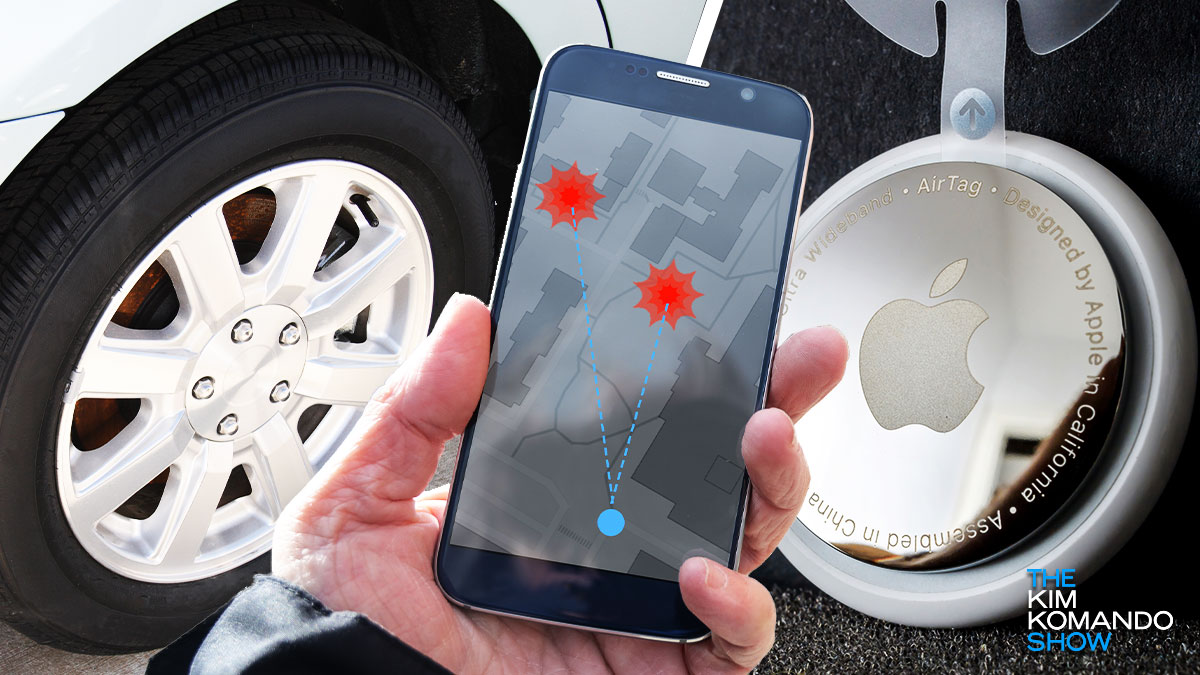✈️ Get back in line: American Airlines is considering new boarding tech that sounds a really loud beep when you try to cut the line and board without your group. It’s being tested now in Albuquerque, Tucson and Washington, D.C. I’ll spare you a plane joke (it won’t take off), but if you need a laugh, watch George Carlin talk about the boarding process. So funny.
Chatbot privacy policies: Who’s collecting what?
Shocker! Another Communist China company was caught red-handed. DeepSeek AI shares user data with TikTok’s parent company, ByteDance. The BBC reports countries worldwide are yanking it from app stores, and I bet we’ll see bans here roll out soon.
Here’s the bigger issue. AI chatbots are always on, always listening and always collecting data. Some are sneakier than others, but make no mistake, if you’re using them, they’re using you. The real question is: How much of your data are they scooping up, and where is it going?
Who’s collecting what?
I combed through the vague, confusing privacy policies so you don’t have to. Links included, though, if you’re curious and want to read legalese.
ChatGPT: Data collected includes your prompts, devices and when and where you’re chatting from. Oh and they might give it to “vendors and service providers.”
Microsoft Copilot: Any interaction can be logged and used to target ads. The bot sees where you are when you use it, too.
Google Gemini: Your chats, location and how you use Gemini are logged. Your chats might be reviewed by Google staff. Google promises this is to improve Gemini, not to sell ads (for now).
DeepSeek: All your conversations, locations and typing patterns are saved. These can be shared with advertisers, other agencies and, presumably, the Chinese government and other companies. Yikes.
Qwen: Another Chinese AI that saves everything from your location to your chat history. Qwen can link all this up with data bought from “third party agencies.” Yes, they’re buying even more info about you.
So, what’s the verdict?
No one comes out of this with a gold star. Gemini is probably the safest for now. It’s separate from Google’s ad business and they do at least give you controls, like auto-deleting chats.
If they’re all “meh” the privacy scale, it’s up to you to keep your data safe.
How to find a hidden GPS tracker on your car

The latest stats say 80% of stalking victims are tracked using tech. One of the most popular ways to do it? GPS trackers, like an AirTag. They’re small enough to slip into a bag, pocket or your car undetected.
“Kim, this doesn’t impact me.” I wish that was true. Maybe you have an ex or friend who won’t buzz off, or maybe you met a stranger at a bar or store who was acting creepy. You’re at risk. Did you drive across the U.S. border? Yep, crooks are targeting tourists, too.
George Carlin on airlines and flying
💸 An older adult lost a whopping $2.09 million in a gold bar scam: But she’s getting 40% back. Morgan Stanley has to pay her $843K for failing to follow industry standards. Banks are supposed to flag big withdrawals and check with a trusted contact first. They didn’t.
Keep hackers out of your online life

Cybercriminals never stop coming up with ways to steal your info, so I’m always on the hunt for tools that make your digital life safer. One of their sneakiest tricks? Keyloggers.
Keyloggers secretly record every single thing you type — passwords, credit card numbers, private messages, you name it. They send your info straight to the person controlling the malware, giving them a backstage pass to your life.
The crypto investment scam that’s all over social media
I’m all about using AI to get stuff done. No kidding, I use ChatGPT every day to shortcut planning and organize my work and my life.
You know who else loves AI? Cybercriminals. A new scam powered by deepfakes is all over social media. Too many people have fallen for it and lost millions of dollars in the process. I’ve got the dirty details so you don’t become a victim, too.
💰 Armed rideshares are popping up everywhere: The new Protector app (iPhone only) lets you book armed guards and Escalades to chauffeur you around for $200 an hour. Think Uber, but with active or retired law enforcement and military officers behind the wheel. BlackWolf hires military and law enforcement too.
Craigslist scam: The guy listed a luxury Palm Beach apartment for $950/month (red flag because it actually costs $5,200/month), and a couple took the bait. The scammer gave them a tour and handed over the keys so it seemed legit. Turns out the real owner had left them in the door for a handyman. Argh.
Retailers have so many ways to track you – Here’s how to fight back
If you have a pulse and an internet connection, companies want all the details they can get about what you’re willing to buy. Now that your holiday shopping is done, it’s time to take back control.
There’s a bit of work you can do and then to reclaim your privacy, but if you’re looking for a longer-term solution, I’ll share my secret weapon in the fight against tracking.
Stalkerware is up 239%: Apps like mSpy and Life360 market themselves as ways to track your kids. Abusers use them to see everywhere their partner goes. This is no small problem; 85% of domestic violence survivors have experienced digital abuse. Need help? Here’s my guide to protecting yourself.
Attn., Windows Insiders: Microsoft’s Recall feature is a privacy nightmare. Even after a backlash forced changes, Recall still captures info like credit cards and Social Security numbers. That’s with the “sensitive info filter” on. Microsoft says they’re fixing it. Again.
Microsoft’s very bad advice: Some 240 million active PCs are too old to update to Windows 11. After years of telling us otherwise, Microsoft now says you can go ahead and update your incompatible PC. The big disclaimer: Your computer might not get every security patch and update, so it’s not worth the risk.
🍩 Krispy Kreme’s security hole: The doughnut giant’s fessing up about a Nov. 29 security breach that took down its online ordering system in parts of the U.S. Along with your credit card details, it’s a safe bet your deep, dark secrets (like how many times you bought a doughnut on the way to work) were leaked, too. Sing it with me: “Doughnut go breaking my heart. I couldn’t if I fried.” Yeah, that was bad.
Bank fraud is rising – How to protect yourself

The scams don’t stop — and here’s another one you need to know about. Your phone rings. It’s a rep from your bank, and they’re warning your account has been compromised. You’re smart, so you immediately suspect it’s a scam.
Everything we know about the MoneyGram breach

Another day, another massive data breach. This time, it’s MoneyGram, a global mega-company that handles money transfers, bill pay and other financial services. They have digital platforms and retail locations, and they even power Walmart’s money-transfer service.
I wasted 36 hours trying to do it myself

So many of the calls, emails, messages and DMs I get are about privacy and security. I can’t remember the last time I had a full day where no one asked me some version of “How do I get all this info about me off the internet?”
Massive data leak impacts 1 in 3 Americans

Data broker MC2 Data left more than 100 million records of Americans exposed online for anyone to copy, grab, forward, sell on the Dark Web — you name it. This comes only a month after the National Public Data breach of 2.9 billion records. I’m getting so tired of these data broker companies and people-search sites screwing up, and it’s you and me who have to pay for their mistakes.
So much data left exposed for anyone to see

Another day, another monumental data breach. Just because they’re getting more common doesn’t mean you can tune it out. In fact, it’s time to get even more serious about your private information and what’s posted online.
Elder fraud is on the rise – These are the most common scams

Here’s a stat that blows me away: One in every 10 seniors is a victim of identity theft each year. Americans over the age of 60 lost $3.4 billion in fraud schemes in 2023. That’s almost an 11% increase from the year before, and things are only getting worse.


